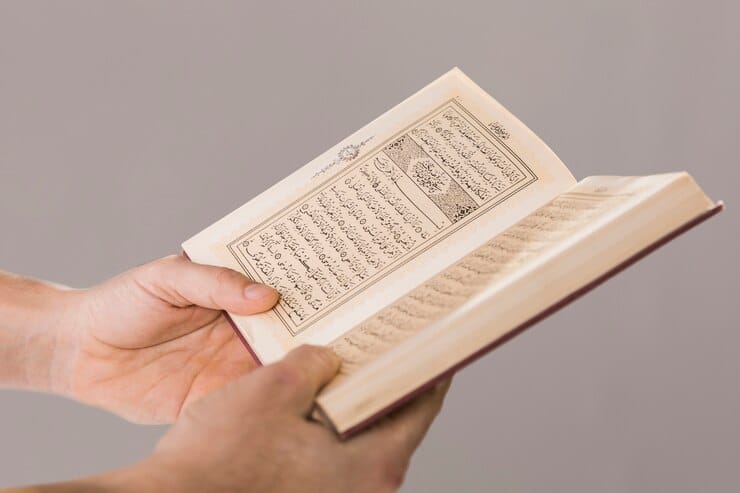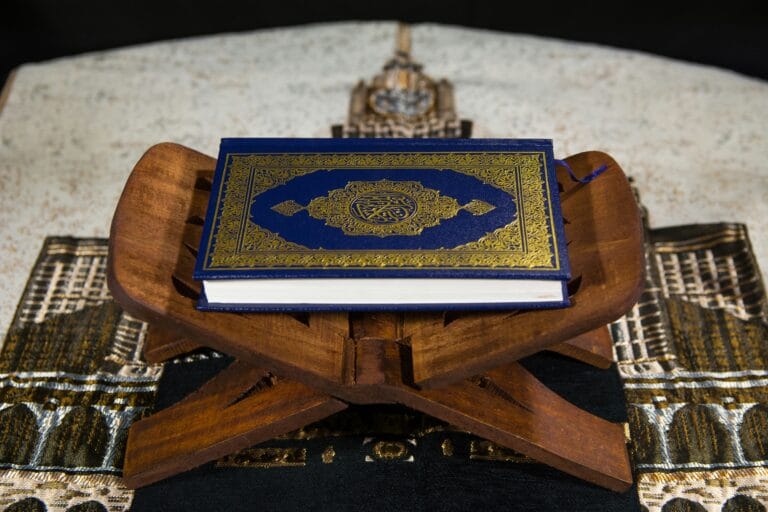Finding Peace with the guidance of Islamic mental health? In our hyper-connected, fast-paced world, feelings of anxiety, stress, and loneliness are at an all-time high. Where can we turn for genuine, lasting peace? For over a billion people, the answer lies in the timeless wisdom of the Quran and the teachings of Prophet Muhammad (PBUH). This blog isn’t just a theoretical discussion; it’s a practical guide exploring how Islamic principles offer profound, actionable strategies for nurturing your mental health and achieving true tranquility, or Sakinah, in your daily life.
Islamic teachings validate negative emotions and mindsets, and from these teachings we can derive practical tips to overcome them. (This line took from Islamic Research on Mental Health & Wellness)
What Does Islam Say About Mental Health? A Holistic View
Unlike modern perspectives that often separate mind from body and spirit, Islam offers a beautifully integrated view of well-being. Your mental state is deeply connected to your faith (Iman), your actions, and your relationship with Allah (SWT). The Quran doesn’t ignore human suffering; it addresses it directly, offering the “heart’s peace” (Sakinah) as a direct blessing from the Divine.
Key Verse: “Unquestionably, by the remembrance of Allah hearts are assured.” (Quran 13:28)
This verse isn’t just a comforting thought—it’s a divine prescription. Let’s explore how this prescription is filled.
The Quranic Blueprint for a Peaceful Mind: Sabr, Tawakkul, and More
The Quran provides a foundational framework for building mental and emotional resilience. Think of these not as abstract concepts, but as mental muscles you can strengthen every day.
- Sabr (Patience) is Your Power: Often mistranslated as mere “patience,” Sabr is proactive perseverance. It’s the inner strength to face life’s tests without crumbling into despair. The Quran constantly links Sabr with success, reminding us that no difficulty is permanent.
- Tawakkul (Trust in Allah) Eases the Burden: This is the ultimate stress-reliever. Tawakkul means doing your part—studying for the exam, seeking the job, taking the medicine—and then entrusting the outcome to Allah. It releases the toxic need to control everything, a major source of anxiety.
- Dua (Supplication) is Your Direct Line: Dua is more than a request; it’s a profound act of worship that acknowledges our dependence on Allah. Verbally expressing your fears, hopes, and pains to The One Who Can Actually Help is incredibly therapeutic.
The Prophet’s (PBUH) Guide to Islamic Mental Health: Practical Sunnahs
Prophet Muhammad (PBUH) was a living example of mental and spiritual strength. His teachings provide a clear, compassionate manual for navigating emotional turmoil.
- A Balanced Life is a Healthy Life: The Prophet emphasized moderation in all things—work, worship, sleep, and leisure. He warned against extremism, understanding that burnout harms both body and soul.
- The Healing of Gratitude (Shukr): He taught that looking at those beneath you in worldly matters fosters gratitude, while looking at those above you in faith fosters ambition. Gratitude literally rewires your brain for positivity.
- Seek Knowledge, Even About Your Health: The famous hadith, “There is no disease that Allah has created, except that He also has created its treatment,” (Sahih al-Bukhari) is a powerful encouragement to seek professional help. Islam beautifully harmonizes faith and science; therapy and medication are part of Allah’s provided cures.
Your Action Plan: Integrating Islamic Teachings for Daily Peace
How do you turn this knowledge into a feeling of peace? Here are three practical steps.
1. Anchor Your Day with Spiritual Practices
- Mindful Salah (Prayer): Don’t just rush through the motions. Treat your five daily prayers as scheduled mindfulness breaks. As you stand before Allah, consciously let go of the world’s worries. This is your time to recharge.
- Therapeutic Dhikr (Remembrance): Create a “dhikr first-aid kit.” When you feel stress rising, repeat simple phrases like “La ilaha illa Anta, Subhanaka, inni kuntu minaz-zalimin” (There is no deity except You; exalted are You. Indeed, I have been of the wrongdoers – Quran 21:87) or “Hasbunallahu wa Ni’mal Wakeel” (Allah is sufficient for us, and He is the best Disposer of affairs).
2. Strengthen Your Social Safety Net
- The Mosque as a Community Hub: Strong social bonds are a buffer against depression. Make an effort to connect with your mosque community. A simple conversation after prayer can lift your spirits.
- The Joy of Giving (Sadaqah): Acts of charity, even a smile, release endorphins. Helping others provides perspective and a powerful sense of purpose, pulling you out of your own head.
Bridging Faith and Modern Psychology: A Complementary Path
For challenges like clinical depression or anxiety disorders, Islamic teachings provide a framework of strength and meaning, while modern psychology offers evidence-based tools. They are not in conflict; they are complementary allies on your path to healing.
- Faith gives you the why: Your life has a purpose. Your struggles have meaning. You are never alone.
- Therapy gives you the how: It provides practical techniques (like CBT) to manage negative thought patterns and behaviors.
Using both is not a sign of weak faith; it’s a sign of using all the resources Allah has provided in His creation.
FAQs: Answering Your Top Questions on Islamic Mental Health
Q1: Can listening to or reciting the Quran really reduce anxiety?
A1: Absolutely. Numerous Muslims report a tangible sense of calm during Quranic recitation. Scientifically, the rhythmic recitation (Tajwid) can have a meditative effect, lowering heart rate and cortisol levels. Spiritually, it connects you directly to the source of all peace, reminding you of Allah’s power and mercy.
Q2: I’m feeling deeply depressed. Is it wrong to see a therapist or take medication?
A2: Not at all. In fact, it is highly recommended. As the Prophet (PBUH) instructed us to seek treatment for physical illnesses, the same applies to mental illnesses. Seeking therapy or medication is an act of Tawakkul—you are taking the necessary means (Asbab) while relying on Allah for the cure. Your faith supports your healing journey.
Q3: How can my five daily prayers (Salah) specifically help with stress?
A3: Salah is a built-in stress management system. It:
- Forces a Break: It interrupts stressful work or thoughts multiple times a day.
- Promotes Mindfulness: The physical movements and focus on recitation anchor you in the present moment.
- Facilitates Surrender: The act of prostration (Sujood) is a physical symbol of surrendering your worries to Allah, providing profound psychological relief.






